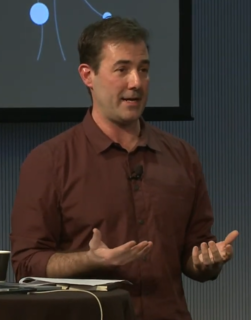A Quote by Tarleton Gillespie
These algorithms, which I'll call public relevance algorithms, are-by the very same mathematical procedures-producing and certifying knowledge. The algorithmic assessment of information, then, represents a particular knowledge logic, one built on specific presumptions about what knowledge is and how one should identify its most relevant components. That we are now turning to algorithms to identify what we need to know is as momentous as having relied on credentialed experts, the scientific method, common sense, or the word of God.
Quote Topics
About
Algorithms
Assessment
Built
Call
Common
Common Sense
Components
Experts
God
Having
How
Identify
Information
Know
Knowledge
Logic
Mathematical
Method
Momentous
Most
Need
Now
Particular
Procedures
Producing
Public
Relevance
Relevant
Represents
Same
Scientific
Scientific Method
Sense
Should
Should I
Specific
Then
Turning
Very
Which
Word
Word Of God
Related Quotes
We have heard of a Society for the Diffusion of Useful Knowledge. It is said that knowledge is power, and the like. Methinks there is equal need of a Society for the Diffusion of Useful Ignorance, what we will call Beautiful Knowledge, a knowledge useful in a higher sense: for what is most of our boasted so-called knowledge but a conceit that we know something, which robs us of the advantage of our actual ignorance? What we call knowledge is often our positive ignorance; ignorance our negative knowledge.
On a strategic level, employers really are behaving stupidly. Look at how they do recruiting: this automated process under which they will publish a job description chock full of so-called "key words", and then have software algorithms that attempt to match applicants to the resumes against those key words. So where in the key word collection do we capture institutional knowledge? No one advertises for that. Of course they don't.
Scientists need the infrastructure for scientific search to aid their research, and they need it to offer relevancy and ways to separate the wheat from the chaff - the useful from the noise - via AI-enabled algorithms. With AI, such an infrastructure would be able to identify the exact study a scientist needs from the tens of thousands on a topic.
Now I wonder what our knowledge has in common with God's knowledge according to those who treat God's knowledge... Is there anything else common to both besides the mere name? ...there is an essential distinction between His knowledge and ours, like the distinction between the substance of the heavens and that of the earth.
The classes of problems which are respectively known and not
known to have good algorithms are of great theoretical interest. [...]
I conjecture that there is no good algorithm for the traveling
salesman problem. My reasons are the same as for any mathematical
conjecture: (1) It is a legitimate mathematical possibility, and
(2) I do not know.
The knowledge we now consider knowledge proves itself in action. What we now mean by knowledge is information effective in action, information focused on results. Results are outside the person, in society and economy, or in the advancement of knowledge itself. To accomplish anything this knowledge has to be highly specialized.


































